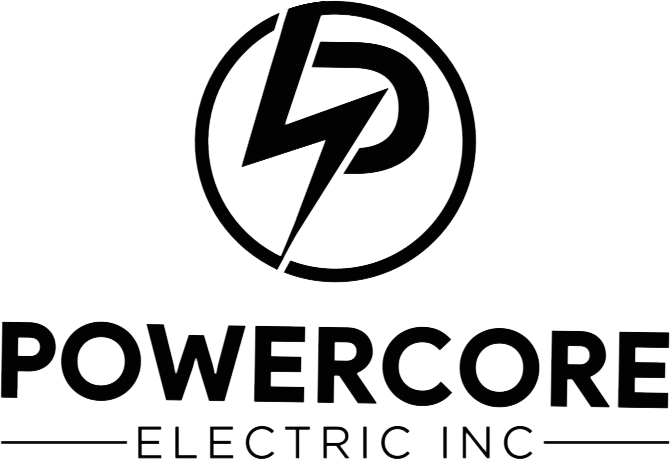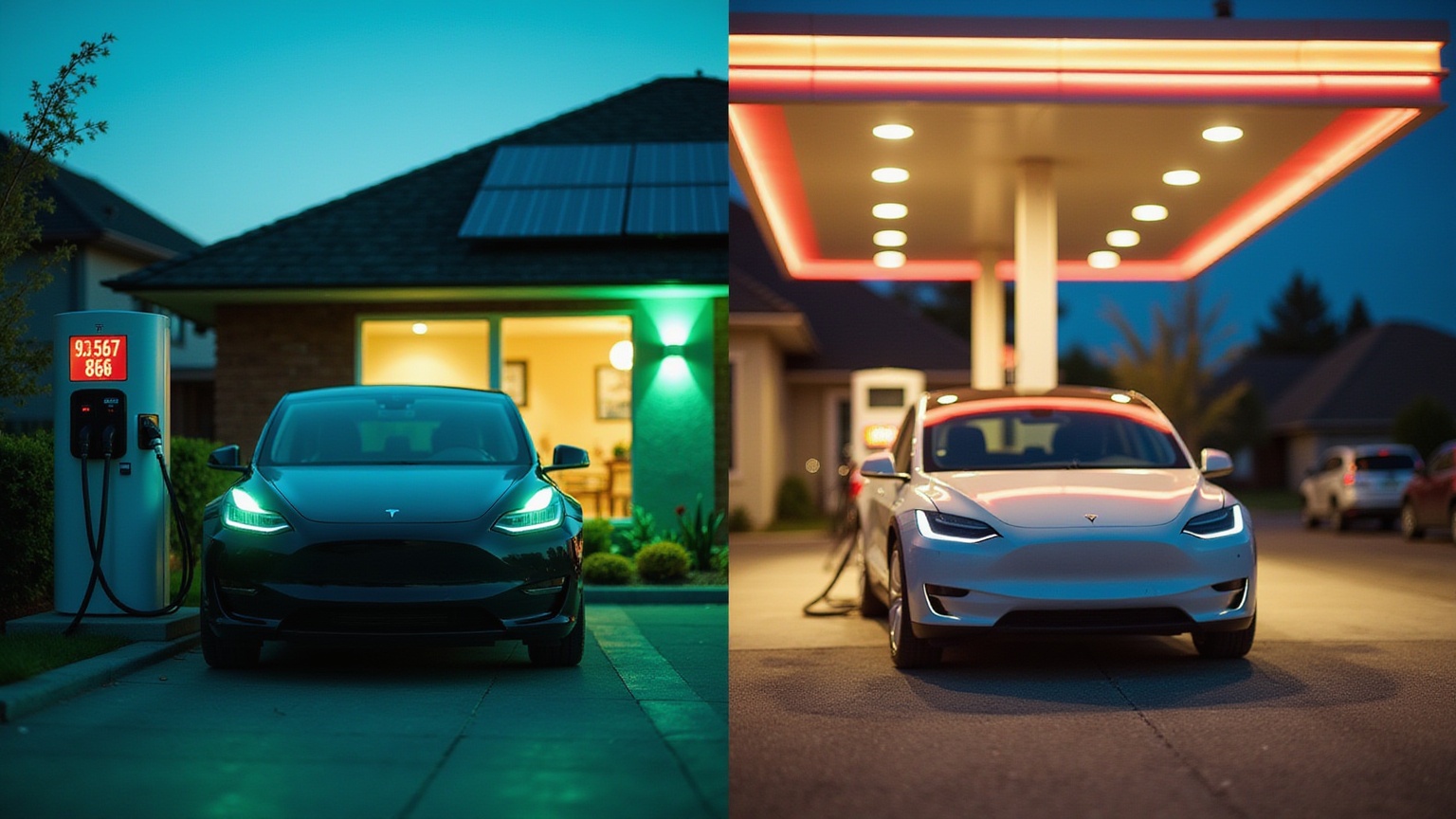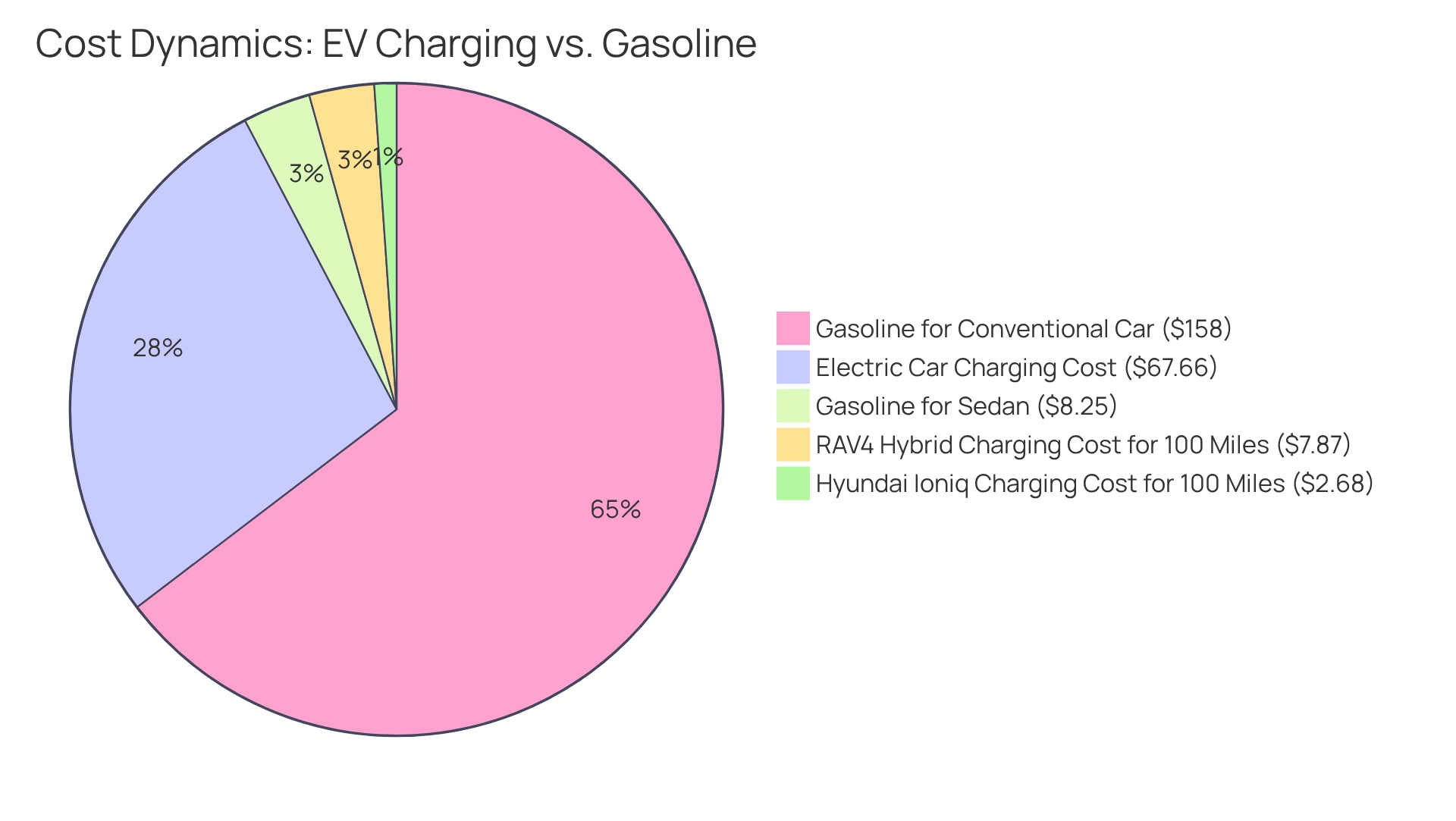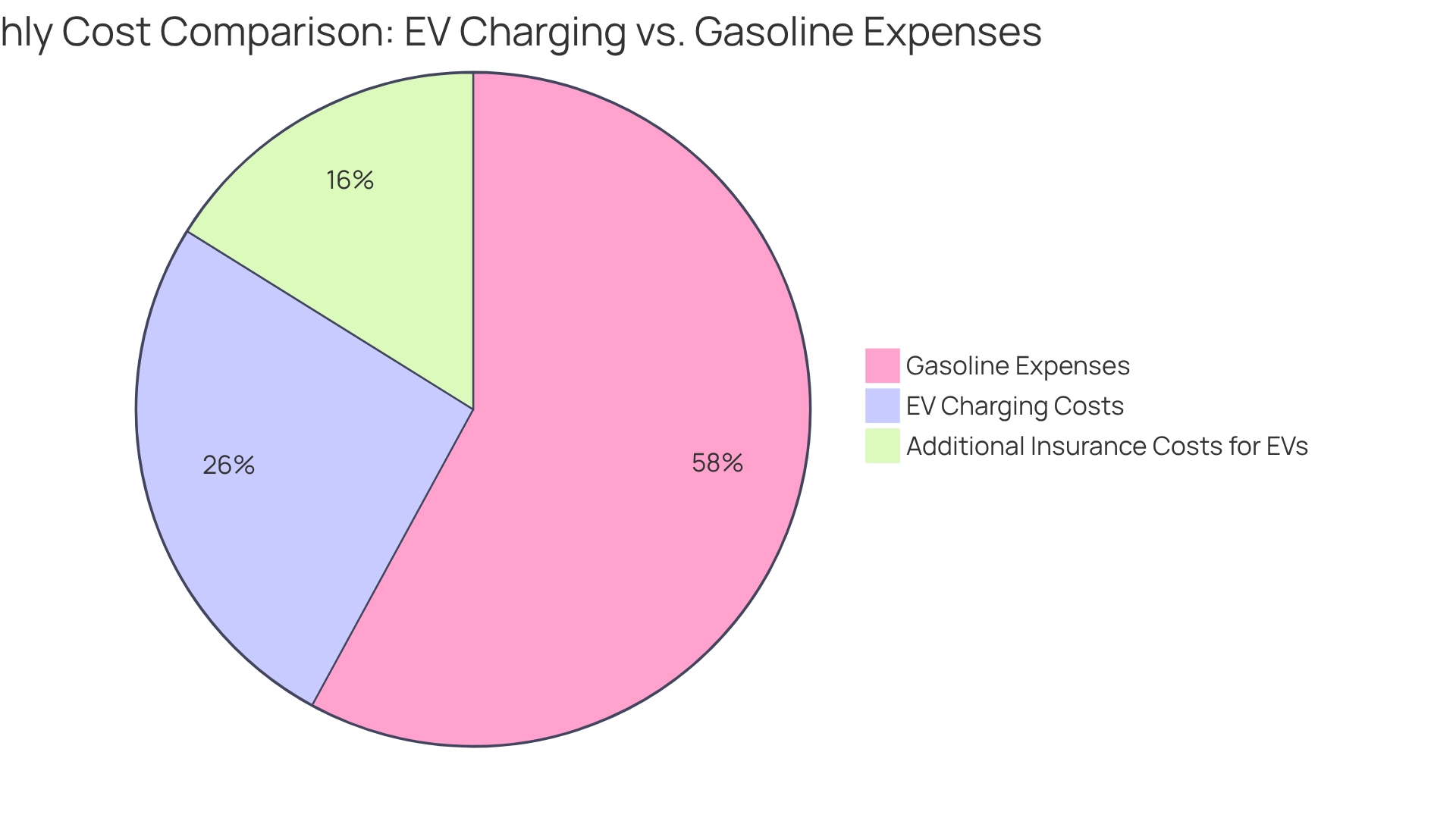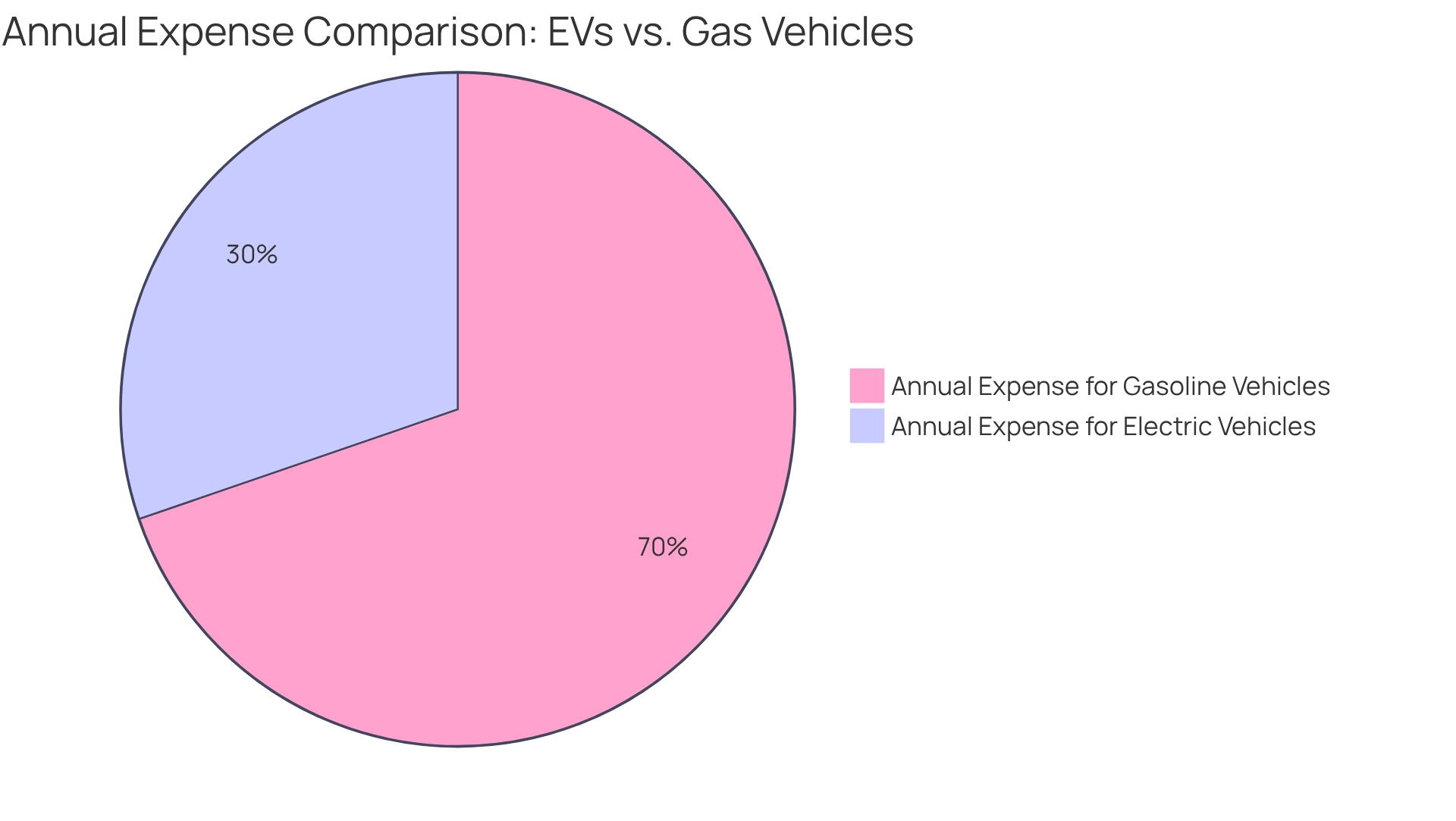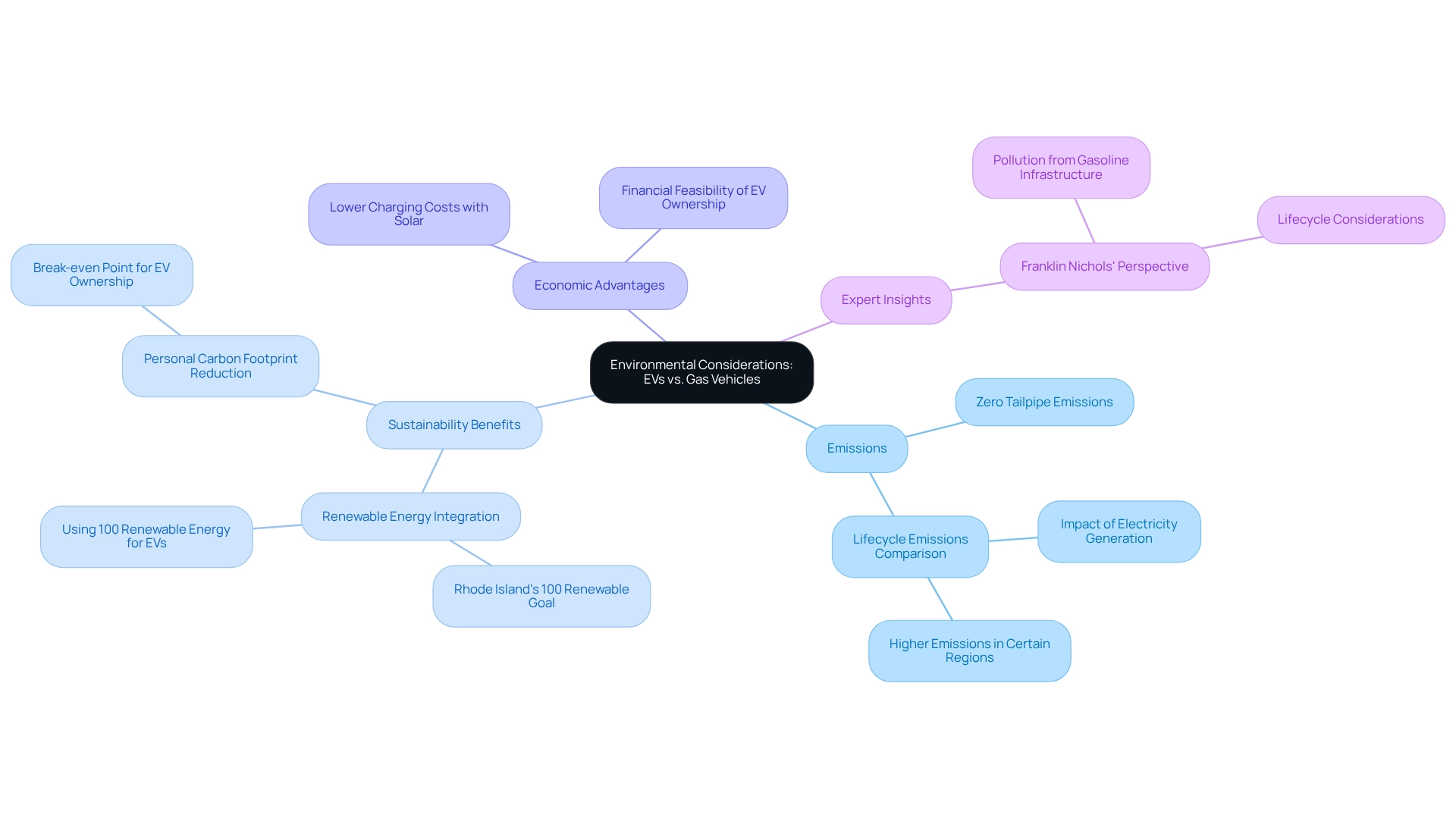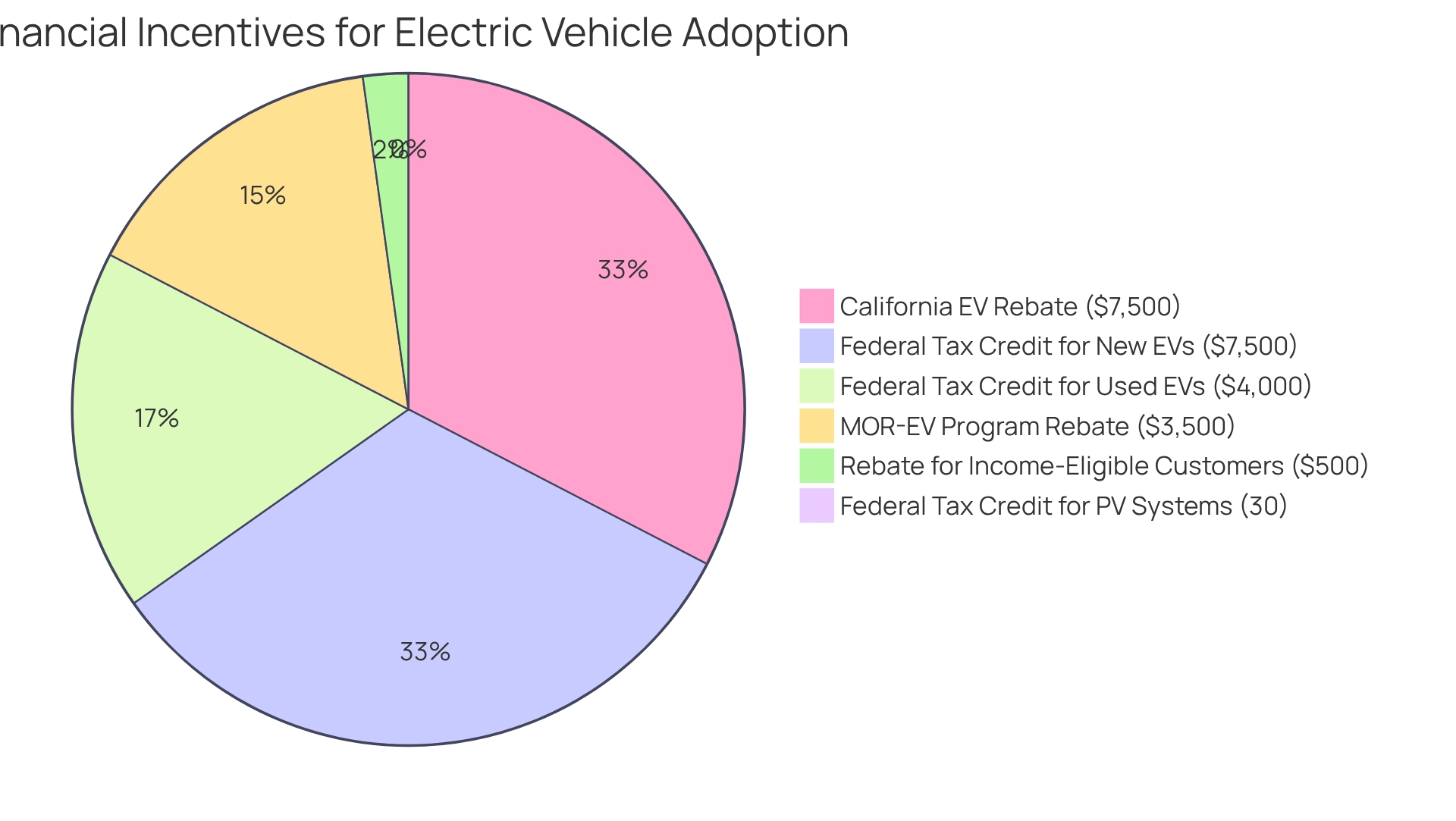Overview
We understand that managing energy bills can be a significant concern for many homeowners. When it comes to charging electric vehicles (EVs), there’s good news: it’s notably more affordable than fueling gasoline-powered cars.
With average monthly costs of about $67.66 for charging an EV compared to $158 for gasoline, the financial benefits are clear. This cost advantage stems from various factors, such as:
- The efficiency of home charging
- Potential savings from solar energy
- The stability of electricity prices, which contrasts sharply with the volatility of gasoline prices
These elements make EV ownership not just a sustainable choice, but a financially appealing one in the long term. Together, we can explore how these savings can contribute to your energy independence and create a more sustainable future. Let’s work towards a solution that supports both your financial well-being and the environment.
Introduction
As we navigate the changing automotive landscape towards sustainability, it’s important to recognize the role of electric vehicles (EVs) as a cost-effective alternative to traditional gasoline-powered cars. We understand that concerns about rising energy bills can weigh heavily on your mind. Did you know that the average monthly charging expense for an EV is approximately $67.66 in 2025, compared to around $158 for gasoline? This stark difference highlights the financial benefits of going electric, making it clear that there are meaningful savings to be found.
This article explores the various factors influencing the costs associated with EV ownership, including:
- Charging setups
- Local electricity rates
- The potential for solar energy integration
By examining both monthly and lifetime expenses, as well as the incentives available to consumers, we aim to show how transitioning to electric vehicles not only contributes to personal savings but also supports broader environmental goals. It’s common to feel overwhelmed by the options available, but as the infrastructure for EV charging continues to expand, understanding these dynamics is essential for anyone considering making the switch to a more sustainable mode of transportation. Together, we can work towards a greener future.
Understanding the Cost Dynamics: EV Charging vs. Gasoline
The expense of refueling an automobile is a significant concern for many drivers, and we understand how important it is to find cost-effective solutions. In 2025, the comparison of electric car charging costs versus gas reveals that the average monthly expenditure for powering an electric vehicle (EV) at home is approximately $67.66, which is considerably less than the average monthly gasoline expense for conventional automobiles, escalating to around $158. This stark contrast highlights the potential savings associated with EV ownership, particularly for those who have the capability to charge at home using a Tesla Level 2 charger.
Several elements affect these expenses, including the specific vehicle model, the power arrangement, and local electricity rates. For instance, powering a Hyundai Ioniq 6 at home in Louisiana requires only $2.68 for 100 miles, whereas fast-charging can rise to $17.08. In comparison, the electric car charging cost versus gas indicates that operating a gasoline-powered sedan that achieves 33 miles per gallon would require approximately $8.25 for the same distance.
Moreover, operating a Toyota RAV4 Hybrid (39 mpg combined) requires $7.87 for 100 miles. This variability in expenses illustrates the financial benefits of EVs, especially in regions with favorable electricity rates.
Furthermore, integrating solar energy solutions can enhance these savings even more. Homeowners who invest in solar panels can significantly lower their electricity expenses, making EV refueling even more affordable. Government programs aimed at promoting solar energy adoption also provide financial incentives, making it easier for homeowners to transition to renewable energy sources.
Expert opinions reinforce this perspective. Ryan Douglas, a resident writer and solar enthusiast, notes, “Charging your electric car at home is the most affordable and efficient choice, even if it will add to your current electricity bill.” This sentiment is echoed by numerous studies suggesting that investing in a Level 2 or Level 3 home refueling station can yield better long-term returns compared to using a Level 1 charger, which is often inefficient and slow.
The case study titled ‘Factors Affecting the Expense of Refueling an Electric Vehicle at Home’ emphasizes that careful consideration of the refueling setup is crucial for maximizing efficiency and saving money.
Additionally, the volatility of gasoline prices can lead to unpredictable monthly expenses, while the electric car charging cost versus gas generally remains more stable. This stability offers EV owners a clearer insight into their long-term expenses, making battery-powered transport an increasingly appealing choice for eco-conscious homeowners aiming to lower their energy bills and improve their energy autonomy. Together, we can explore solar-powered heating solutions that further contribute to energy efficiency and sustainability, aligning with the goals of environmentally conscious homeowners in California.
Factors Influencing Electric Vehicle Charging Costs
We understand that managing energy bills can be a significant concern for many homeowners. When considering the expense of powering an electric vehicle (EV), it’s essential to look at various factors, such as the type of charger used—Level 1, Level 2, or DC fast power—regional electricity prices, and the vehicle’s efficiency. Typically, charging at home with a Level 2 charger proves to be more cost-effective than relying on public DC fast chargers, which can range from $0.30 to $0.50 per kilowatt-hour (kWh). Additionally, utilizing time-of-use electricity rates can lead to substantial savings, especially when recharging during off-peak hours.
The efficiency of your EV, measured in miles per kWh, is another crucial element that impacts the overall comparison of electric car charging costs versus gas expenses.
At Powercore Electric, we are here to support you with extensive installation services for EV power stations. Our offerings include:
- Site evaluations
- Necessary electrical enhancements
- Setup
- Thorough testing to ensure optimal performance
This growing infrastructure is vital as it reflects the increasing demand for reliable power solutions. As Greg Sowder, President of Qmerit Network, states, “Rated #1 in customer satisfaction, Qmerit’s experienced network of certified electricians has installed over 450,000 EV power stations in homes and businesses throughout the U.S. and Canada!”
Moreover, we recognize that around 55 percent of consumers value eco-friendly power from renewable sources, with 70 percent willing to pay a premium for it. This shift towards sustainable energy practices is heartening and reflects a collective desire for a greener future.
The infrastructure for EV power stations can significantly affect costs, particularly when comparing electric car charging costs to gas. For instance, connecting to existing electrical systems may necessitate considerable upgrades, which can vary significantly depending on whether a company connects to a 240-volt circuit or establishes a dedicated 480-volt circuit. By understanding these factors, you can optimize your power usage, ultimately reducing energy expenses and enhancing your automotive experience.
Additionally, integrating solar panel functionality and battery storage solutions can further improve energy efficiency and sustainability for homeowners. Together, we can navigate this transition, making Powercore Electric a valuable partner in your journey towards energy independence.
For more detailed guidance on solar panel functionality and optimal battery choices for efficient energy storage, please refer to our user manuals. Let’s work towards a sustainable future together!
Monthly Cost Comparison: Charging an EV vs. Gasoline Expenses
In the ongoing assessment of monthly expenses, we understand that many homeowners are concerned about the rising costs of energy. When comparing the charging costs of electric vehicles (EVs) versus gasoline cars, it becomes clear that charging an EV is significantly more affordable. As of 2025, the average monthly expense to charge an EV is approximately $70.72, while the average price for gasoline auto fuel hovers around $158. This stark difference reveals potential savings of nearly $87.28 each month for EV owners, highlighting the financial benefits of choosing electric over gas.
Moreover, installing a Tesla Level 2 home charger can enhance these savings even further, providing a convenient and efficient way to charge at home. While it’s important to acknowledge that insurance rates for electric vehicles tend to be higher than those for gasoline-powered cars—averaging an increase of $44 per month due to elevated repair costs and the implications of writing off EVs after incidents—the overall financial advantages remain compelling. Additionally, as gasoline prices fluctuate, EV owners enjoy more stable and predictable expenses, especially when considering the electric car charging cost versus gas, particularly with home power solutions.
Practical tools like the PlugShare app can assist EV drivers in locating and evaluating charging options, further enhancing the convenience of EV ownership. This financial advantage, coupled with considerations of insurance expenses, offers a strong incentive for many buyers to contemplate switching to battery-powered transportation. By making this transition, they not only reduce their monthly expenses but also contribute to a more sustainable energy future.
Are you ready to embrace the benefits of battery-powered cars? Together, we can explore how Powercore Electric’s EV charging solutions can help you transition smoothly and support you in embracing a cleaner, more sustainable future.
Lifetime Costs: Evaluating Long-Term Expenses of EVs vs. Gas Vehicles
Owning an electric car (EV) can significantly ease your financial worries when you compare the costs of charging an electric vehicle with those associated with gasoline cars. While the initial purchase price of EVs may be higher, they often come with lower upkeep expenses due to fewer moving parts and less frequent servicing needs. Recent studies indicate that the typical yearly expense to run an EV is around $485, compared to approximately $1,117 for a gasoline vehicle. This difference can lead to substantial savings over the vehicle’s lifespan, potentially amounting to thousands of dollars.
To illustrate this further, let’s consider a typical driver who covers an average annual mileage of 15,000 miles. Over three years, this amounts to 45,000 miles driven. When factoring in maintenance and operational expenses, the financial benefits of choosing an EV become even clearer, especially when you weigh the electric car charging cost against gas prices.
Moreover, many states offer incentives and rebates for EV purchases, further reducing the overall cost of ownership. We understand that navigating these options can feel overwhelming, but expert insights can help clarify the landscape. Maxwell Woody, a doctoral student at the School for Environment and Sustainability, notes that “the cost disparity between battery-powered and gasoline automobiles relies on numerous personal and regional factors.” This variability highlights the importance of considering your local conditions when evaluating the financial implications of EV ownership.
Furthermore, the transition to electric vehicles is not just about personal savings; it also encompasses broader issues such as equitable access to home power sources, particularly for low-income families and tenants. This context is vital for understanding the impacts of EV adoption across diverse communities.
With over 30 years of experience serving California communities, Powercore Electric offers a range of services, including solar panels, battery backups, and EV power stations. Their dedicated team is here to help you make informed choices about EV power solutions, ensuring you maximize the financial benefits of owning an electric vehicle. For instance, Powercore Electric provides attractive rates for their EV refueling stations, making it easier for homeowners to transition to battery-powered vehicles.
Customer testimonials reflect this commitment to service excellence: “Ryan and his team were great. They were fast, efficient, and stayed on schedule for our solar installation. I have referred Powercore to some friends, and they were also happy with their service. I’d definitely recommend Ryan and Powercore Electric.”
By connecting the financial advantages of EVs to their offerings, Powercore Electric positions itself as a supportive partner for eco-conscious homeowners eager to reduce their energy expenses and environmental footprint. Together, we can explore your options and find the best solutions for your needs. For more information or to schedule a consultation regarding their services, contact Powercore Electric today.
Infrastructure Insights: Accessibility and Costs of EV Charging Stations vs. Gas Stations
The availability of power stations is crucial in the decision-making process for potential EV owners. As of 2025, California will boast more EV refueling points than gasoline stations, showcasing the state’s commitment to enhancing its infrastructure to support the growing adoption of electric cars. With approximately 25% of recent automobile purchases in California being zero-emission models, the demand for EVs is clear, highlighting the urgent need for a robust refueling infrastructure.
This shift is further bolstered by significant investments, including the $1.4 billion allocated to improve the EV refueling network, particularly in underserved areas, ensuring equitable access to refueling facilities. These investments are essential for accommodating the increasing number of battery-operated vehicles on the road.
However, we understand that the costs associated with electric car charging compared to gasoline can vary significantly. Public charging stations, especially fast ones, often have higher usage fees, typically ranging from $0.30 to $0.50 per kWh, which can influence the overall electric car charging cost. In contrast, gasoline stations usually offer more stable pricing, although fluctuations in gas prices can still occur, especially when weighing electric car charging costs against gas.
For consumers contemplating a transition to battery-powered vehicles, the availability of nearby power stations and the comparison of electric car charging costs versus gasoline remain key factors in their decision-making process. Additionally, California has secured nearly $150 million from the U.S. Department of Transportation to establish over 9,200 EV power ports, with a portion earmarked for underserved neighborhoods in Los Angeles County. This investment is vital for ensuring that the rising number of electric vehicles is supported by a reliable and accessible power supply system.
As Raphael Schossler noted, California’s EV transition presents a paradox: an electricity refueling network that surpasses gas stations, yet consumer demand has not fully aligned with policy ambitions. As the state continues to prioritize the expansion of refueling facilities, the accessibility and costs associated with electric car charging will significantly influence consumer preferences and the future of transportation in California. Furthermore, Powercore Electric’s dedicated team of specialists ensures high-quality installations and maintenance of charging stations, facilitating the shift to electric transportation while providing homeowners with the convenience and savings of home EV charging.
Powercore Electric also integrates renewable energy solutions, empowering homeowners to charge their EVs sustainably. For more information about our services or to schedule a consultation, please reach out to Powercore Electric at ryan.serrano@powercoreinc.net or call (916) 699-8778.
Environmental Considerations: The Sustainability of EVs vs. Gas Vehicles
Electric cars (EVs) are increasingly recognized as a sustainable choice compared to gasoline-powered transportation, primarily because of their zero tailpipe emissions. This characteristic significantly reduces air pollution and lowers greenhouse gas emissions when contrasted with conventional internal combustion engine (ICE) vehicles. Recent analyses show that the lifecycle emissions of EVs are generally lower than those of gasoline cars, even when considering the emissions associated with electricity generation.
As the energy grid shifts towards greener sources, the environmental benefits of EVs are expected to grow even more. For instance, Rhode Island plans to achieve 100% renewable energy by 2033, which will greatly decrease the emissions related to powering vehicles in that region.
Real-world examples illustrate this trend: individuals who utilize 100% renewable energy to power their EVs can significantly speed up their break-even point regarding environmental impact, even with modest driving mileage. This decision not only positively influences their personal carbon footprint but also supports broader sustainability goals. A case study highlighted that using renewable energy can hasten the break-even point for EV ownership, reinforcing the environmental advantages of going electric.
At Powercore Electric, we understand the growing importance of sustainable transportation solutions. With years of experience and expertise in electrical services, we offer high-quality EV power solutions to individuals and businesses across Northern California. Our services include a variety of EV power stations tailored to meet diverse needs, along with solar panels and battery backups, which can further enhance the sustainability of your energy usage.
Moreover, the economic advantages of integrating solar energy solutions with electric car charging costs versus gasoline cannot be overlooked. By harnessing solar panels, homeowners can significantly lower their electricity expenses, positively impacting the electric car charging cost compared to gas, making EV ownership even more financially feasible. This synergy not only supports personal savings but also contributes to a more sustainable energy future.
Expert insights emphasize the importance of considering the complete lifecycle of automobiles. As environmental advocate Franklin Nichols points out, “Do your graphs and calculations consider the drilling for oil, transporting oil, refining oil and not simply the emissions from ICE? Also the sizable infrastructure of all the thousands of gas stations or the amount of fumes released every time a tank is filled?”
This perspective underscores that the traditional gasoline transportation infrastructure adds layers of pollution that are often overlooked in simplistic comparisons.
In summary, for eco-conscious consumers, opting for a battery-powered mode of transport is not just a matter of personal choice; it represents a commitment to sustainability and a proactive step towards reducing their overall environmental footprint. For more information on how Powercore Electric can assist you with EV power solutions and solar energy alternatives, please don’t hesitate to reach out to us at (916) 699-8778 or via email at ryan.serrano@powercoreinc.net.
Maximizing Savings: Incentives and Rebates for Electric Vehicle Owners
California understands the concerns many residents have about rising energy bills and the financial strain associated with transitioning to battery-powered cars (EVs). To ease this burden, the state actively encourages the adoption of EVs through a variety of incentives and rebates. Residents can receive up to $7,500 in rebates for purchasing new EVs, significantly lowering the initial investment required. Additionally, benefits for setting up home refueling stations further enhance the ease and availability of owning a battery-powered car.
Powercore Electric is here to support you in this transition by offering extensive EV charging solutions that seamlessly integrate with solar energy systems, optimizing both efficiency and sustainability.
As we move into April 2025, California continues to champion EV adoption with financial incentives, including rebates for home charging station installations. This makes it simpler for homeowners to shift to vehicles powered by electricity. These initiatives are complemented by federal tax credits, which provide up to $7,500 for new EV acquisitions and $4,000 for pre-owned automobiles, expanding the appeal of this transportation option across various income levels. It’s noteworthy that used EV prices have risen by 2.32% from July to August 2021, reflecting the dynamic nature of the market.
The Massachusetts Offers Rebates for Electric Vehicles (MOR-EV) Program serves as a successful example, demonstrating how financial incentives can effectively drive EV adoption. This program offers rebates of up to $3,500 for qualifying automobiles, depending on ownership length and application schedules, showcasing the tangible benefits of such initiatives.
As of 2025, the financial landscape for battery-powered transportation ownership in California is further bolstered by a 30% federal tax credit for photovoltaic (PV) solar panel systems, along with a $500 rebate for income-eligible customers. This combination of state and federal incentives not only makes electric vehicles more affordable but also encourages sustainable energy practices, linking the advantages of solar energy with electric vehicle ownership.
By leveraging these financial incentives, consumers can maximize their savings and make informed decisions about their vehicle choices, ultimately contributing to a greener future. Are you ready to transition to battery-powered cars?
Let’s work together to embrace a cleaner, more sustainable future. Contact Powercore Electric today to learn more about our EV charging solutions and how we can assist you in this journey.
Conclusion
We understand that transitioning to electric vehicles (EVs) can feel like a big step, but it presents notable financial and environmental benefits that can ease your concerns. With an average monthly charging cost of about $67.66, compared to approximately $158 for gasoline vehicles, EV owners can save nearly $87.28 each month. Just imagine the relief of lower energy bills!
Over time, the lifetime costs of EVs are significantly lower, with annual operating expenses averaging $485 for EVs versus $1,117 for gasoline vehicles. These savings, coupled with available incentives and rebates, truly make EV ownership increasingly appealing. Together, we can embrace this shift towards more sustainable choices.
The expanding charging infrastructure, particularly in states like California, enhances accessibility and convenience, making the switch to EVs more practical. With more charging stations available than gasoline stations, consumers can enjoy a seamless experience, alleviating worries about charging access.
Moreover, EVs contribute to sustainability through zero tailpipe emissions, promoting cleaner air and reducing greenhouse gas emissions. As the energy grid incorporates more renewable sources, the environmental advantages of EVs will continue to grow, allowing us all to play a part in a healthier planet.
In conclusion, the financial, infrastructural, and environmental advantages of electric vehicles present a compelling case for their adoption. Embracing EV technology not only leads to personal savings but also supports a sustainable energy future. Now is the right time for you to consider making the switch to electric vehicles, with resources like Powercore Electric available to guide and support you through this transition. Let’s work towards a brighter, more sustainable future together.
